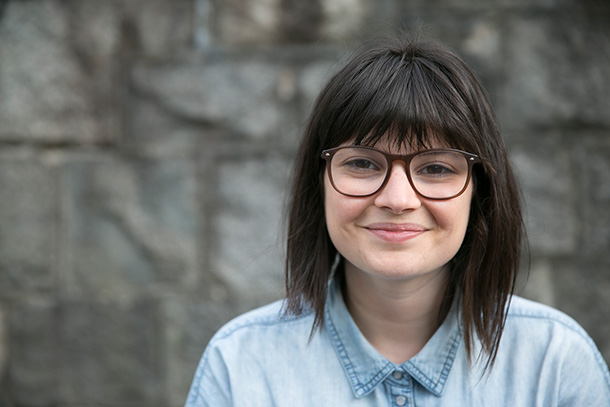How might suffering Canadian newspapers reinvent their business models? Will "niche" journalism save democracy? Could Canada's oil industry learn a thing or two from The Tyee's award-winning reporting?
These are the varied questions news outlets have posed this week as The Tyee's one-of-a-kind journalism model splashed across Canadian editorial pages -- from the Walrus magazine, to the CBC, to the industry magazine Alberta Oil.
Of course, we wish it were under better circumstances. Devastating cuts to newsrooms across the country seem to be what's prompted reporters to ask us about our funding, our readers, our small team of journalists, and our thoughts on newspapers' future.
For the record: The Tyee has never claimed to be an alternative to well-resourced daily newspapers (we strongly believe democracy needs those, too!). We've always strived to be a feisty species in Canada's rich media ecosystem.
Nevertheless, we think these media mentions speak volumes about the health of that ecosystem and the growth of independent and alternative models in recent years.
And it's not just Canadian media that's taken note: last year, after interviewing our founding editor David Beers, the New Yorker deemed The Tyee a "fascinating case study" in successful local journalism.
Have a look at the recent clips, and tell us what you think in the comments below.
'Bright spot in the future of journalism': CBC
This week, a CBC reporter out of Halifax gave us a ring for a story on "niche" reporting. In a story that ran Monday, King's University prof Kelly Toughill posited that, "the bundling of a variety of content is a failing business model."
The Tyee and Blacklock's Reporter were both named as alternative models that go deep on a specific set of issues. Blacklock's charges a subscription fee for its incremental legislation coverage that institutional subscribers such as unions and business groups sorely need, while The Tyee mixes funding from readers, advertisement, patient investors and workshops to cover stories that matter to our audience.
"When [Builders] give, they are covering the cost for themselves and many other people," Tyee's director of community development Jeanette Ageson noted. "Because the vast majority of our readers just won't."
'Experiment worthy of note': Walrus
Stephen Kimber at the Walrus magazine pointed out our model for putting impact and quality before our bottom line. The story suggested cohorts like iPolitics, National Observer and the Halifax Examiner could be the silver lining in the dark cloud hanging over newspapers.
"What makes these experiments worthy of note -- and hope -- is that they are motivated not only by a necessary desire for commercial success, or at least sustainability, but also by their founders' commitment to actual acts of journalism that inform, educate, elucidate and entertain."
Alberta Oil: Tyee puts energy on front page
Alberta Oil magazine showed some interest in the way our award-winning reporters have "changed the way other Vancouver journalists report on energy issues" by shifting focus to "the problems and dangers of the oil and gas business."
Here's what SFU communications professor Shane Gunster told reporter Markham Hislop: "The coverage The Tyee has provided has been one of the forces which has forced mainstream media to pay more attention to, one, the relationship between energy and the environment, and two, to make energy more of a front page story rather than a business-page story."
Read the full story here.
Tyee investor 'new face of philanthropy'
Finally, Eric Peterson, who has been a minority investor in The Tyee since 2007, is on the cover of this month's BC Business for his support of coastal science. In addition to The Tyee, his foundation supports the Environmental Law Centre at the University of Victoria, the Centre for Microbial Diseases and Immunity Research at UBC, and most recently a new coastal science research centre and magazine called Hakai.
Peterson told the magazine he sees his own funds as a "resource" that he hopes to exhaust fully before he dies. "We see the Tula Foundation as a mechanism for wealth mobilization and redistribution," he said of his impact-first mantra. "The goal is to put the money to work."
So, what do you think is the way forward for media? What's working, what's not? Let us know in the comment threads below. ![]()
Read more: Media
















Tyee Commenting Guidelines
Comments that violate guidelines risk being deleted, and violations may result in a temporary or permanent user ban. Maintain the spirit of good conversation to stay in the discussion.
*Please note The Tyee is not a forum for spreading misinformation about COVID-19, denying its existence or minimizing its risk to public health.
Do:
Do not: